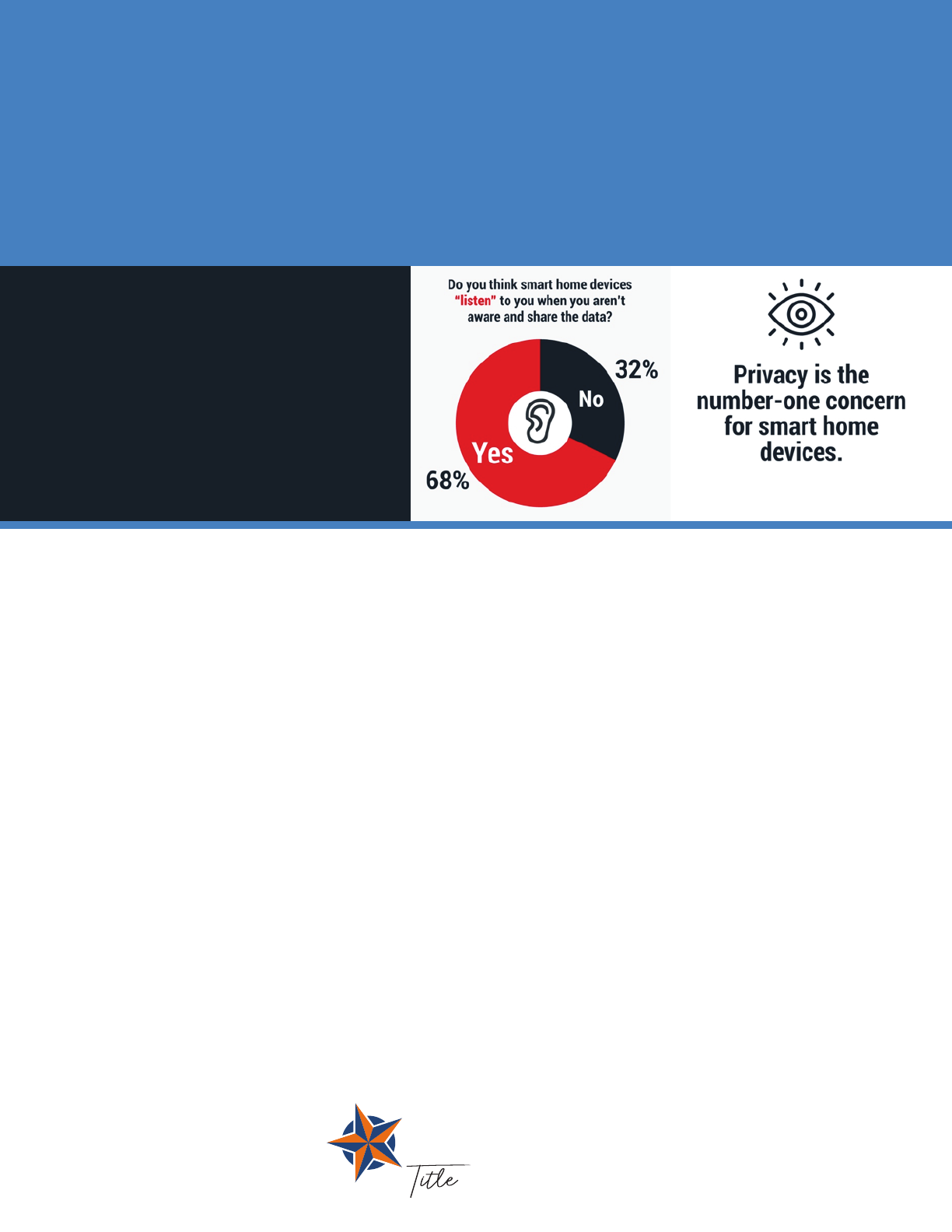
Is Your Sellers’
Surveillance
Putting Them at Risk?
The rules in Texas
Both the Federal Electronic Communications Privacy Act (ECPA) and
Section 16.02 of the Texas Penal Code prohibit audio recordings without
the consent of at least one individual who is part of the conversation. The
Texas rule, commonly referred to as the one-party rule, requires at least
one party to consent to recording conversations. What that rule allows is
any individual to covertly and legally record his own conversations with a
broker, neighbor, or other party. Whenever you speak, it’s best to follow
the old saying: Say what you mean and mean what you say. The other
person in the conversation may be recording everyone.
Why a seller cannot record audio of a showing
Texas law does not allow audio recording or audio monitoring of
conversations that you are not a part of. If the seller is not present and
participating in the showing, he cannot record it. Even though the
conversation happens inside a seller’s home, he is prohibited from
recording any conversations that he is not a part of.
But what about video?
Many homes today have security cameras installed that record video.
Some have audio recording, similar to a baby monitor, and some without.
The ECPA does not prohibit video recording. In fact, silent videos from
security cameras are generally allowed as long as it isn’t in an area where
an individual would have a reasonable expectation of privacy. For
instance, silent bathroom video recording is not allowed. But silent video
recording of the foyer, kid’s playroom, exterior of a home, and a garage
are likely permitted.
Selling a home can be frustrating to homeowners. They’re asked to allow strangers into their home. They may never
receive feedback and are left to wonder, “Why didn’t that last buyer bite?” What do anxious sellers do? They get an extra
set of ears. Many homeowners have installed security cameras and smart-home devices. These installations can be an
ultra high-tech security system or a simple baby monitor, and they all can be abused. A number of notable cases have
emerged where sellers listened to a potential buyer’s showing. Sometimes it’s to gain advantage in negotiations, while
other times it’s simply to better stage the property. So, can a seller covertly record or monitor a buyer’s showing?
Is your listing breaking the law?
Most professional alarm and security camera installers are familiar with the
law. Normally, they install video cameras without audio and are leery to
install cameras in any location other than a foyer. However, when your
seller is a do-it-yourselfer, you may want to ask questions. Have sellers tell
you what the system will record. If audio is recorded, the seller may have a
problem. If it is silent video, have sellers show you where the cameras are
located. Make sure they aren’t video recording in a private area, such as a
bathroom. Courts have traditionally upheld individual privacy rights over
the property rights in a residential home. Consider limiting the use of
cameras to the exterior of the residence. Violating state and federal
recording laws can involve criminal penalties.
ln addition, Texas, like many states, recognizes several types of common
law invasion of privacy claims. At its essence, invasion of privacy protects
a person against unreasonable intrusion upon his seclusion, solitude, or
private affairs. Even though recording may be in the seller’s house, courts
have found that a visiting party can have a valid claim when the homeowner
overreaches.
Illegal recording is a felony offense in Texas, and anyone who has been
recorded in violation of the law can bring a civil suit to recover $10,000 for
each occurrence, actual damages in excess of $10,000, punitive damag-
es, attorney’s fees, and court costs.
Help your sellers avoid criminal or civil liability by encouraging them to
concentrate on feedback given with consent and leave the mics and
hidden cameras out.
By Wes Bearden, Texas REALTORS®, texasrealestate.com
Independence
❖

Smart home devices have a lot of benefits, but many real estate professionals are concerned with one big drawback: an
always-on device in a home that could be listening to everything they and their clients say.
Shhhh! Don't say you like the house~
Privacy has become a significant concern for Realtors showing smart homes. A growing number of home sellers are using
smart devices to spy on potential buyers as they tour their houses. They then may use what they hear or see as leverage in
price negotiations. Just about every smart device that is connected to the internet and offers personalized services can
spy on you.
Let's explore a list of smart devices that may be watching and listening. In today's world, the list falls under the classifica-
tion of the Internet of Things (IoT).
• Smart Phones
• Webcams/ Home security cameras
• Baby monitors
• USB flash drives with voice activation
• Wireless Bluetooth speakers
• Pens that have voice activated voice recording
• Smart TVs like Amazon Fire TV
• Xbox Kinect
• Amazon Echo/ Google Home Assistant/Alexa/Siri/Cortana
• Nest Cam
• Ring doorbell/ Skybell doorbell
• Smart home security outdoor lighting and camera
• Petcube interactive wifi pet camera
When showing a house, it’s always a good practice before walking in the home to ask the buyers to imagine the seller is
home and listening. Always take conversations about the house and the confidential details of the purchase off-site!
Home Buyer, Beware!
The Seller May Be
Watching and Listening!
Smart Home
Privacy
Concerns
Independence
❖
